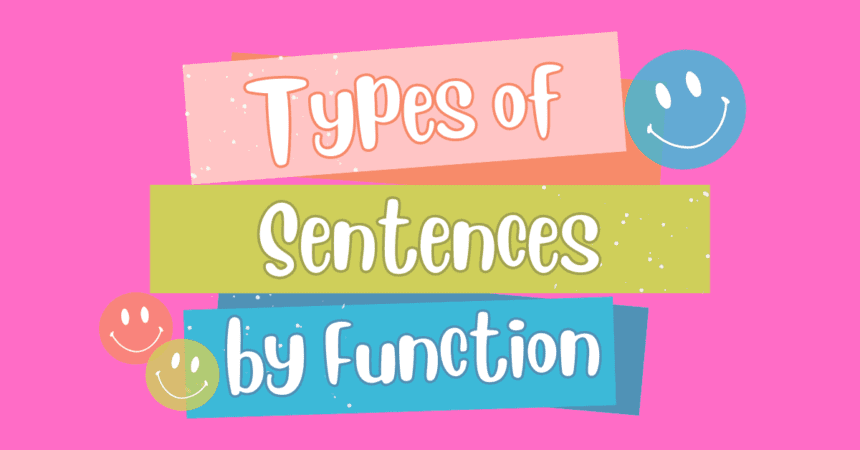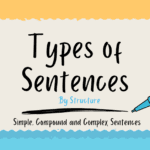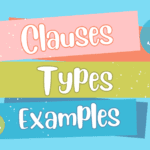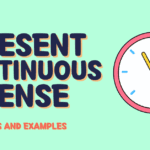A sentence is a group of words that expresses a complete thought or idea. It consists of a subject and a predicate, and it often includes one or more objects, modifiers, or other elements. A sentence typically begins with a capital letter and ends with a punctuation mark, such as a period, question mark, or exclamation point. A sentence can be as short as one word (e.g., “Go!”) or as long as several paragraphs.
In order to be a complete sentence, a group of words must contain a subject and a verb and express a complete thought. The subject is the person, place, thing, or idea that is performing the action described by the verb. The verb is the action being performed or the state of being described in the sentence. For example, in the sentence “The cat chased the mouse,” “the cat” is the subject and “chased” is the verb.
If any of these elements is missing, the group of words is considered a fragment and is not a complete sentence.
Correct punctuation is important in constructing a sentence. It helps to indicate the intended meaning and helps the reader to understand the structure of the sentence. Proper punctuation can also make a sentence clearer and more easily understandable. Grammatically correct sentences are important for effective communication. They allow the reader or listener to understand the intended meaning of the message being conveyed.
Functionally, there are different types of sentences:
Note
Sentences also have four types by Structure, i.e., simple, compound, complex, and compound-complex. Refrain from mixing these sentence types with sentences categorized by their structure. Read more about four types of sentences categorized by their structure.
Declarative Sentence
A declarative sentence (also known as an Assertive sentence) is a type of sentence that makes a statement or declares something. It is the most common type of sentence and is used to convey information or to express a belief or opinion.
Here is an example of a declarative sentence:
- The sky is blue.
In this sentence, the subject is “the sky” and the predicate is “is blue.” The sentence declares that the sky is blue.
Declarative sentences usually end with a period, but they can also be written as questions or commands. To turn a declarative sentence into a question, you can add a question mark at the end and change the word order to make it a question.
For example:
- Is the sky blue?
To turn a declarative sentence into a command, you can add an exclamation point at the end and omit the subject.
For example:
- Be quiet!
Declarative sentences can be simple or compound, depending on the number of clauses they contain. A simple declarative sentence has one clause, while a compound declarative sentence has two or more clauses.
Here are some examples of compound declarative sentences:
- The sky is blue, and the grass is green.
- I went to the store, but I forgot to buy milk.
Imperative Sentence
An imperative sentence is a type of sentence that gives a command or makes a request. It is typically used to tell someone to do something or to request that something be done. The verb in an imperative sentence is usually in the base form, and the subject is usually “you” (although it can be left out).
Here is an example of an imperative sentence:
- Close the door, please.
In this sentence, “close” is the verb in the base form, and “you” is the implied subject. The word “please” is added as a politeness marker.
Here is another example:
- Turn off the lights before you go to bed.
In this sentence, “turn off” is the verb in the base form, and “you” is the implied subject. The phrase “before you go to bed” provides additional context for the command.
Imperative sentences are often used to give instructions or to make requests, but they can also be used to give orders or to express strong feelings or emotions.
Interrogative sentence
An interrogative sentence is a type of sentence that is used to ask a question. It typically begins with a question word (such as “who,” “what,” “where,” “when,” “why,” or “how”) or a verb in the present simple tense followed by a subject.
Here is an example of an interrogative sentence:
- What are you doing?
In this sentence, “what” is the question word, and “you” is the subject. The verb “are doing” is in the present simple tense.
Here is another example:
- Where is the library?
In this sentence, “where” is the question word, and “the library” is the subject. The verb “is” is in the present simple tense.
Interrogative sentences are used to ask for information or to seek clarification. They can be used to ask about a wide range of topics, including people, places, things, and events.
Exclamatory Sentence
An exclamatory sentence is a type of sentence that expresses strong emotion or emphasis. It is typically marked by an exclamation point (!) at the end and is written in an exclamatory form.
Here is an example of an exclamatory sentence:
- I can’t believe it!
In this sentence, the exclamation point at the end indicates that the speaker is expressing strong emotions, such as surprise or disbelief.
Here is another example:
- What a beautiful day it is!
In this sentence, the exclamation point at the end indicates that the speaker is expressing strong emotions, such as joy or enthusiasm.
Exclamatory sentences are often used to convey excitement, enthusiasm, surprise, or other strong emotions. They can be used to make a statement or to ask a question.
It’s worth noting that exclamatory sentences are not typically used in formal writing, but they are common in spoken language and informal written communication.








